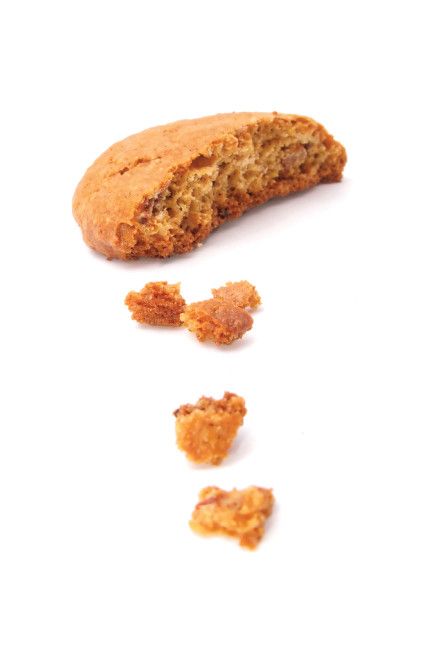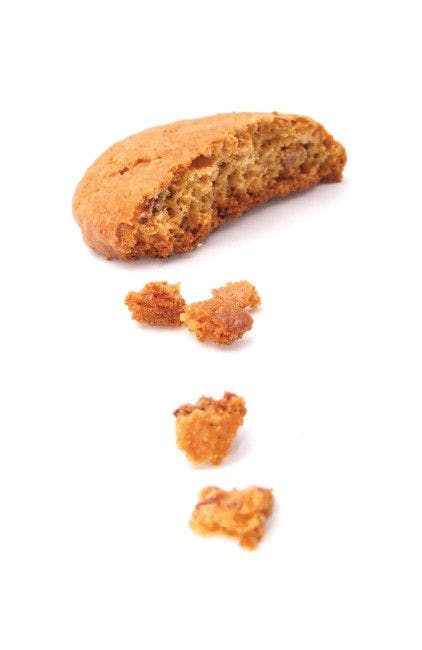Blood Sugar Research Targets Functional Food Applications
The newest research on blood sugar nutraceuticals is aimed at both at-risk and diabetic individuals where they shop: in the functional food aisle.
Photo © iStockphoto.com/Watcha

More than 100 million U.S. adults have diabetes or prediabetes, according to the Centers for Disease Control and Prevention. About 9.4% of the U.S. population (or about 30.3 million people) have the disease and another 84.1 million have prediabetes.1 With diabetes reaching epidemic proportions, it’s no surprise that consumers are looking to nutraceuticals for blood sugar support, whether they’ve been diagnosed with the disease or not.
“The interest for blood sugar management ingredients has increased over the last couple of years,” says Patrick Luchsinger, marketing manager of nutrition, Ingredion Inc. (Westchester, IL). “Maintaining optimal blood sugar levels is not only important for people with diabetes, but also for the general population as well.”
Plus, says Jim Komorowski, chief scientific officer, Nutrition 21 (Purchase, NY), it’s not just consumers who are opening their minds to supplements for blood sugar: “Over time, there has been some turnover in the traditional medical community allowing for an upsurge of homeopathic or more naturally inclined physicians, who are open to exploring nutraceuticals as a recommended option for their patients.”
In response, the dietary supplement industry is taking a multi-pronged approach to tackling the diabetes problem. While some ingredients are helping consumers achieve healthier body weights, others support normal insulin function, and still others prevent oxidative stress. “Manufacturers have a unique opportunity to formulate supplements that can help on two fronts,” says Steve Holtby, president and CEO of Soft Gel Technologies Inc. (Los Angeles). “Preventing metabolic syndrome and diabetes in those at risk, and controlling the disorders in those who already have them.”
Indeed, the newest research examines the impact nutraceuticals can have on a range of consumers-from those who are overweight and, therefore, at risk of developing diabetes later on, to those with a prediabetes or type 2 diabetes diagnosis.
Recent Research
Some of the latest research in the healthy blood sugar market examines the use of natural ingredients in foods for improving metabolic function.
One study, published 2017 in Nutrition Journal, evaluated the effect of consuming muffins containing 50 grams of a branded resistant starch (Hi-Maize 260 from Ingredion Inc.) on blood glucose, subjective satiety, and markers of appetite regulation.2 Researchers recruited 18 overweight but otherwise healthy adults to consume either muffins with the ingredient or control muffins over the course of six weeks. Those who consumed the Hi-Maize muffin for six weeks had, first, decreased blood glucose concentrations compared to baseline; second, a decrease in blood leptin concentrations during the two hours after a meal; and, third, an increase in fasting blood peptide YY (associated with reduced hunger). Together, these findings suggest that the ingredient may improve metabolic functions related to appetite regulation.
A separate study examined the long-term effects of consuming bagels fortified with Hi-Maize on fasting and postprandial glycemic markers in adults with an increased risk of type 2 diabetes.3 This was a double-blind, placebo-controlled, randomized crossover dietary intervention clinical trial consisting of two eight-week dietary intervention periods separated by a four-week washout period. Researchers measured insulin resistance and beta cell function using fasting measures of glucose and insulin, and conducted an oral glucose tolerance test to assess glycemic control. Participants either consumed bagels fortified with 25 grams Hi-Maize or a control bagel made with wheat flour.
Results showed that, among those who consumed the fortified bagel, post-treatment insulin resistance was significantly lower, and post-treatment pancreas beta-cell sensitivity improved. Essentially, investigators concluded that consumption of high-amylose resistant starch improves glycemic efficacy by reducing the amount of insulin required to manage postprandial glucose, while also improving fasting insulin sensitivity.
These findings did not go unnoticed. “In December 2016, the FDA authorized a qualified health claim for high-amylose maize resistant starch and reduced risk of type 2 diabetes, while ensuring the claim was appropriately worded so as not to be misleading,” says Luchsinger. “These claims can be used on the packaging of conventional foods, as defined by 21 CFR 101.14. Such products include bakery items, nutrition bars, cereals and pastas among others.” With snacking on the rise, Luchsinger anticipates that this claim could help brands and manufacturers create functional midday, mid-morning, energy and commuting snacks.
Functional fibers, too, have been studied for their blood sugar benefits for those at risk. Two studies completed in 2016, conducted by a team at Imperial College London and funded by Diabetes UK, show three major beneficial effects of a branded enriched inulin ingredient (Orafti Synergy1 from Beneo Inc.; Parsippany, NJ) in reducing the risk of diabetes.
For the first study, which took place over 18 weeks, researchers recruited 20 prediabetics to consume 30 grams of the branded ingredient daily.4 A control group consisted of 19 prediabetic individuals, who consumed a non-fermentable fiber for the same period of time. While both groups lost about 5% of their body weight over the course of the first nine-week period, the treatment group showed a sustained and significantly greater weight loss in the following nine weeks. Researchers speculate that it was the significantly greater reduction in food intake that was observed: after nine weeks of supplementation, the treatment group consumed about 270 kcal less in an ad libitum meal test.
Ultimately, researchers say the ingredient led to a greater reduction in body fat percentage, with significant results in liver fat-a risk factor for metabolic diseases-and soleus muscle fat.
The second crossover design study confirmed these findings, but also found improvements in insulin response. In this study, 34 participants with impaired fasting glucose and/or impaired glucose tolerance consumed up to 30 grams of Orafti Synergy1 daily, or a non-fermentable fiber as control.5 In prediabetic participants with impaired fasting glucose, supplementation significantly reduced fasting insulin and insulin resistance. A meal tolerance test in a subgroup of 13 participants further revealed that the ingredient enhanced early insulin secretion after a meal without changes in total insulin secretion, and increased early GLP-1 secretion in comparison with the control.
These findings have the potential to transform how brands approach their functional food offerings. “Beneo’s chicory root fibers help to increase the fiber content of food and beverage products invisibly, which means that taste and texture remain the same or are even improved, while adding health benefits to the products,” says company president Jon Peters.
In 2017, additional findings revealed that chicory root fibers can significantly lower blood glucose response when used to partially replace sugars in a food product.6 Researchers compared the blood glucose and insulin responses of healthy individuals eating yogurt drinks that were identical in composition except for one detail: one variety contained full sugar, and the other had replaced some of the sugar with Beneo’s Orafti GR or inulin.
First, researchers tested the effects of a 250-g (8.8-oz) yogurt drink in which 20% of the sucrose was replaced with Orafti GR. Not only was a 14% reduction in blood glucose response measured, but insulin response was also reduced by 17%. Next, they tested a 110-g (3.88-oz) serving of fruit jelly, in which 30% of the sucrose was replaced. This time, a 16% reduction in blood glucose response was recorded, and the insulin response was reduced by 40%.
“The company’s inulin and oligofructose, derived from chicory root, contribute to a lower glycemic response of food and drink products because they are not digested in the human digestive system and thus no glucose is released into the bloodstream,” says Peters. “Replacing high-glycemic ingredients (e.g. sucrose, glucose and glucose syrups, maltodextrin) using BENEO’s dietary fibers that lower the blood glucose response of the final product will add a valuable fiber source at the same time.”
While research and development intended to support healthy blood sugar before diabetes onset is important, the latest findings on the supplements side from Cepham Inc. (Piscataway, NJ) are centered around lowering the sugar levels of individuals diagnosed with type 2 diabetes.
Published in Food & Nutrition Research in 2016, one study evaluated the efficacy of 500 mg of Cepham’s branded fenugreek seed extract (Fenfuro) over the course of 90 days.7 Researchers recruited 154 subjects with type 2 diabetes, and measured their body weight, blood pressure and pulse rate, as well as fasting and postprandial plasma sugar, glycosylated hemoglobin, and fasting and postprandial C-peptide levels. What they found was that the branded fenugreek extract caused significant reduction in both fasting plasma and postprandial blood sugar levels. About 83% of the Fenfuro-treated group reported decreases in fasting plasma sugar levels as compared to 62% of the placebo group. And 89% of the subjects in the Fenfuro group demonstrated a reduction in postprandial plasma sugar levels, while just 72% in the placebo group did the same.
“Because diabetes is considered a disease-state, nutraceuticals can never really claim to treat it, or serve as a treatment for unhealthy blood sugar,” says Komorowski. “However, due to increasing scientific evidence and general consumer interest, nutraceuticals are proving to be an option to at least support healthy blood sugar levels.”
Also read:
Dietary Supplement Ingredients for Maintaining Blood Sugar
Blood Sugar Dietary Supplement, Food Products in the Mainstream Market
References:
- “New CDC report: More than 100 million Americans have diabetes or prediabetes,” press release issued, July 18, 2017. Accessed Jan. 7, 2017.
- Maziarz MA et al., “Resistant starch lowers postprandial glucose and leptin in overweight adults consuming a moderate-to-high-fat diet: A randomized-controlled trial,” Nutrition Journal, vol. 16, no. 1 (February 2017):14.
- Dainty SA et al., “Resistant starch bagels reduce fasting and postprandial insulin in adults at risk of type 2 diabetes,” Journal of Nutrition, vol. 146, no. 1 (Nov. 2016):2252–2259
- Guess ND et al., “A randomized controlled trial: the effect of inulin on weight management and ectopic fat in subjects with prediabetes,” Nutrition & Metabolism, vol 12 (2015): 36
- Guess ND et al., “A randomized crossover trial: The effect of inulin on glucose homeostasis in subtypes of prediabetes,” Annals of Nutrition and Metabolism, vol. 68, no. 1 (2016): 26–34
- Lightowler H et al., “Replacement of glycaemic carbohydrates by inulin-type fructans from chicory (oligofructose, inulin) reduces the postprandial blood glucose and insulin response to foods: Report of two double-blind, randomized, controlled trials,” European Journal of Nutrition (March 2017)
- Narsingh V et al., “A multicenter clinical study to determine the efficacy of a novel fenugreek seed (Trigonella foenum-graecum) extract (Fenfuro) in patients with type 2 diabetes,” Food & Nutrition Research, vol. 60, no. 1 (2016)

Prinova acquires Aplinova to further increase its footprint in Latin America
April 7th 2025Prinova has recently announced the acquisition of Brazilian ingredients distributor Aplinova, which is a provider of specialty ingredients for a range of market segments that include food, beverage, supplements, and personal care.


























